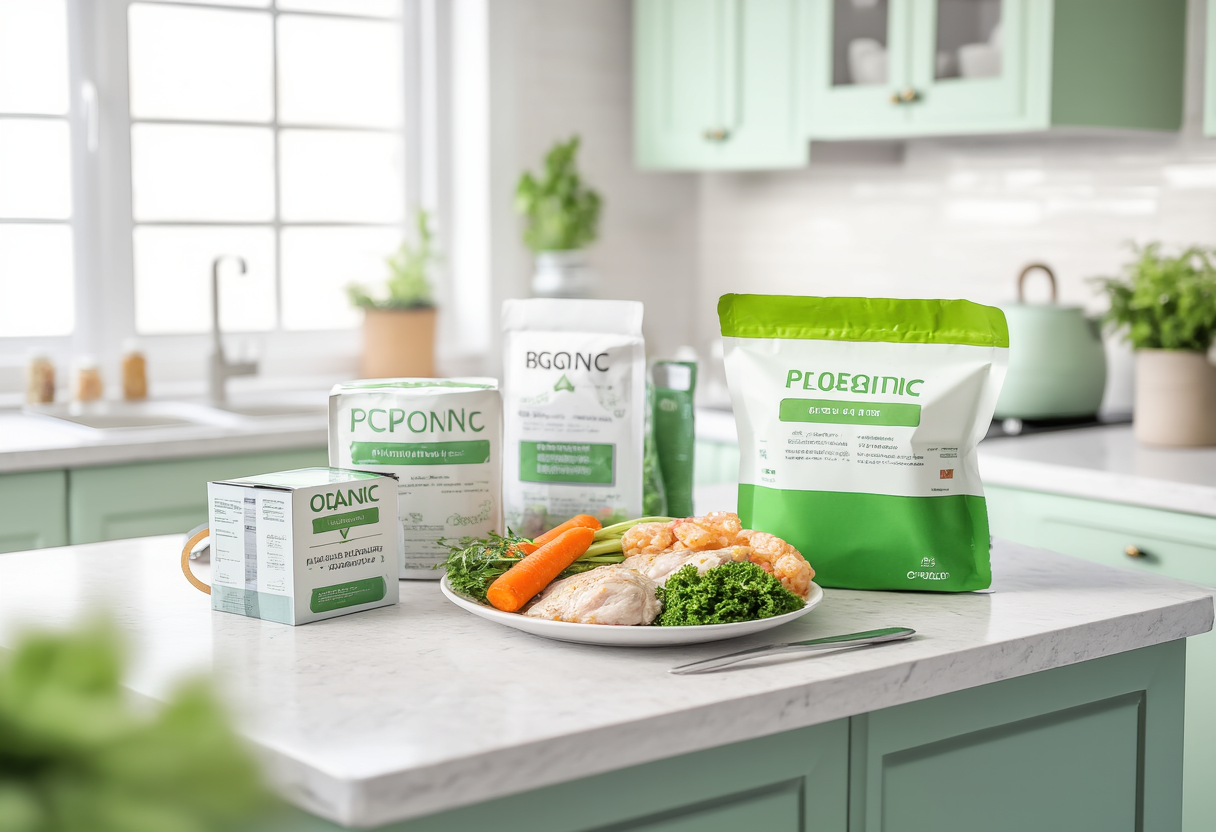The Rise of Organic Frozen Food: A Healthy Choice for Modern Lifestyles
Organic frozen food is making waves in the health-conscious market, providing convenient options that do not compromise on nutritional value. This article explores the benefits, market dynamics, and cultural adaptations of organic frozen food. Discover how this trend is reshaping our eating habits and why it's becoming a staple for busy lifestyles.
The Growing Popularity of Organic Frozen Food
In recent years, the market for organic frozen food has seen a significant rise, driven by changing consumer behaviors and an increasing awareness of healthy eating. Organic frozen food offers a practical solution for individuals seeking quality nutrition without the hassle of preparation. With busy lifestyles becoming the norm, many consumers are turning to these quick-fix options while ensuring their dietary needs are met. Moreover, the variety in organic frozen food allows access to fruits, vegetables, and meals that are both convenient and rich in nutrients. Hence, incorporating organic frozen food into daily routines can save time and support overall well-being. The commitment to organic standards also reflects a broader trend towards sustainable eating, as more consumers are mindful of their impact on the environment and their health.
Health Benefits of Choosing Organic Frozen Food
Organic frozen food is not only convenient but also packed with health benefits. By freezing food at peak freshness, essential vitamins and minerals are preserved, which is often not the case with fresh produce that might lose nutrients over time. As a result, consumers opting for organic frozen food can enjoy optimal nutrition without the fear of unhealthy additives. Additionally, selecting organic options can reduce the risk of exposure to pesticides and preservatives commonly found in conventional frozen food. This leads to healthier choices that align with a holistic approach to wellness. Importantly, emphasis on organic frozen food also encourages mindful eating practices and awareness of where our food comes from, fostering better health for individuals and families alike.
Cultural Adaptation and Market Dynamics
The demand for organic frozen food has prompted companies to adapt their products to various cultural preferences. As societies become more globalized, the availability of diverse organic frozen options has increased. Manufacturers are now focusing on creating flavors and meals that cater to different ethnicities while adhering to organic standards. This cultural adaptation is vital as it allows organic frozen food to resonate with consumers from diverse backgrounds, thus widening its appeal. Moreover, trend analysis indicates that millennials, who are generally more inclined toward health and wellness, are a key demographic influencing this shift. Their commitment to organic principles combined with their busy lifestyles cements organic frozen food as a primary option in their dietary preferences. By appealing to cultural specificity, companies not only capture market share but also encourage a more inclusive menagerie of food choices.
Challenges in the Organic Frozen Food Market
Despite the promising growth in the organic frozen food sector, challenges persist. The production and distribution of organic products often come with higher costs, which can result in elevated prices for consumers. Additionally, maintaining quality and freshness throughout the supply chain is crucial yet complex. Market competition also imposes pressure on innovation and product diversification, leading to a crowded space where distinguishing quality organic frozen food becomes imperative. As consumers become more discerning, brands will need to emphasize transparency, showing the path from farm to freezer. This entails educating consumers about what makes their organic frozen food superior and fostering trust that can lead to customer loyalty. Navigating these challenges will be essential for the long-term sustainability of organic frozen food brands.
The Impact of Technology on Organic Frozen Food
Technology has significantly impacted the organic frozen food industry, enhancing production, preservation, and distribution methods. Advanced freezing techniques are now employed to ensure minimal loss of nutritional value, extending the shelf life of organic frozen food without compromising quality. Additionally, the rise of e-commerce has revolutionized how consumers purchase organic frozen food, allowing for direct-to-consumer models that bypass traditional retail channels. Online platforms not only provide convenience but also access to a wider array of products, including niche organic options that may not be available locally. Furthermore, data analytics enables teams to gauge consumer preferences and adapt their offerings accordingly. Technology thus serves as a facilitator of growth and innovation within the organic frozen food sector.
Looking Ahead: The Future of Organic Frozen Food
The future of organic frozen food appears promising as consumer preferences increasingly lean towards healthier, more convenient options. Trends indicate that the sector will continue to grow, both in popularity and innovation. As sustainability becomes a crucial concern for consumers, greater emphasis on environmentally friendly packaging and production processes in organic frozen food will emerge. Additionally, there is potential for the introduction of enhanced nutritional profiles, with innovative ingredients being used to boost health benefits. For brands, staying attuned to shifting market trends and consumer demands will be vital, as will maintaining high-quality standards in their organic frozen food offerings. Ultimately, those brands that prioritize health, sustainability, and transparency are well-positioned to thrive in this evolving landscape.
